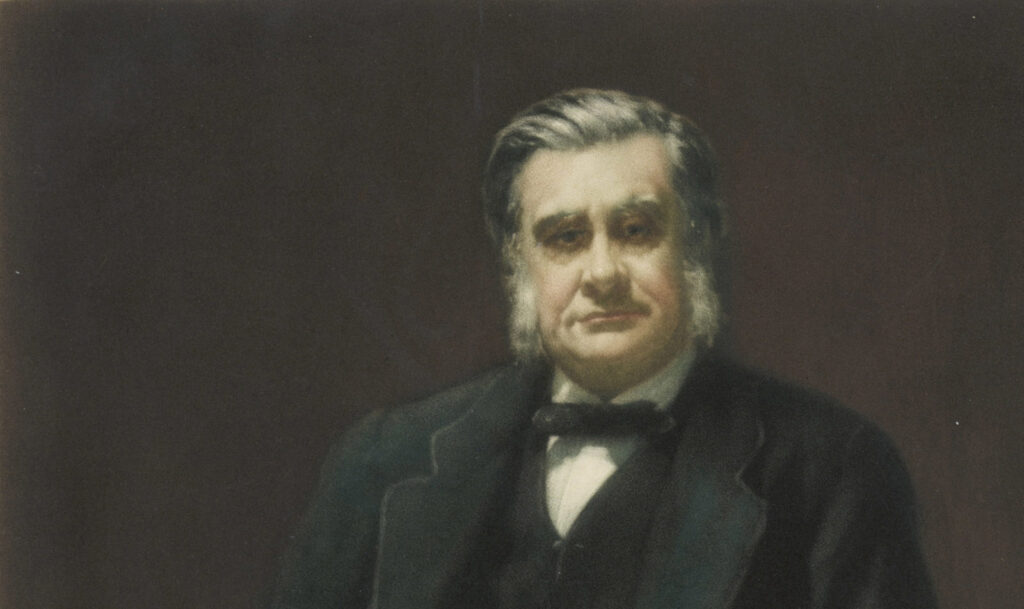Educator, biologist, and agnostic (he coined the term) Thomas Henry Huxley was an Englishman. He was born on May 4, 1825, in Ealing, Middlesex, and died on June 29, 1895, in Eastbourne, Sussex. Due to his outspoken defense of Charles Darwin’s evolutionary naturalism, Huxley earned the nickname “Darwin’s bulldog,” and through his work in organizations, public speaking engagements, and writing, he helped elevate the status of science in modern society.

Campus Life
Thomas Henry Huxley was born above a butcher shop, the youngest of the six living children of schoolteacher George Huxley and his wife, Rachel. Even though Huxley only spent two years (1833–1835) at the failing Ealing School run by his father, its evangelicalism had a lasting impact on his scientific rhetoric. Huxley’s father tried to run a bank in his hometown of Coventry starting in 1835, which left him stranded in the area known for its ribbon-weaving. Huxley’s parents were Anglicans (members of the Church of England), but the young man identified with the town’s Nonconformist (or Dissenting) weavers, who favored religious equality and opposed the Anglicans’ hold on public institutions. He read Unitarian writings because he was interested in both science and religion, and because their cause-and-effect explanations and denial of a distinction between spirit and matter posed a challenge to the socially conservative notions that dominated natural history and natural theology.
Thomas Carlyle’s writings helped Huxley understand the distinction between the religious emotion of awe and theology, which dealt with gods and miraculous occurrences. The young person held the same view as radical Dissenters that morality was a cultural construct that could be explained by science. These served as the cornerstone for Huxley’s atheism, passion for science, and understanding of sectarian power dynamics.
The pupil with the long hair was a trainee (c. 1838–1841) to his sister Ellen’s husband, John Charles Cooke, a beer-swilling medical materialist. Early in 1841, Huxley was moved to a London dockside doctor, where he was profoundly impacted by the lives of his impoverished patients. There was no escaping sectarian politics and science, not even at Sydenham College, off Gower Street in London, where Huxley was awarded the botany prize in 1842. Sydenham’s owner, Marshall Hall, was studying mechanistic reflex arcs while criticizing the Royal College of Physicians for not admitting Dissenters to its fellowship.
The Rattlesnake’s Journey
While his microscope was attached to a table in the chart room, he enlisted in the navy to pay off his debts and served as an assistant surgeon on HMS Rattlesnake, which conducted surveys of New Guinea and Australia’s Great Barrier Reef between 1846 and 1850. He grouped them under the general term Nematophora (named for their stinging cells) membranes, which would later come to be known as endoderm and ectoderm, despite the fact that they were later included in the phylum Cnidaria (or Coelenterata). The aristocratic Captain Owen Stanley, commander of the Rattlesnake, sent Huxley’s papers to his father, the bishop of Norwich, for publication in London. But Huxley was outraged by this kind of archaic patronage and insisted that science was no longer reliant on aristocratic approval.
Darwin’s bulldog
When Charles Darwin was getting ready to start writing On the Origin of Species (1859), he saw Huxley’s star rising. A visit to Darwin’s Down House in 1856 marked the start of a long friendship between the two men and their families. The Darwins were godparents to two of the Huxleys’ eight children, and Nettie recovered there after the death of her firstborn, Noel, in 1860. She and Emma Darwin also shared concerns about their husbands’ scientific theorizing and its implications for religion. Contrarily, Huxley and Charles Darwin made an excellent pair. In the public eye, Darwin required a supporter and defender. Huxley chose an internal source of variation that could instantly lead to the emergence of new species after initially having difficulty with natural selection itself.
Nevertheless, he was aware of Darwin’s naturalistic (i. e. , nonmiraculous) approach as a useful tool in his endeavor to forge an independent scientific elite free from the constraints of the old order. Since Darwin’s Origin of Species is a “Whitworth gun in the armoury of liberalism,” Huxley played up the contentious aspects of evolutionary theory instead of avoiding them. In contrast to some of his contemporaries (such as Saint George Jackson Mivart), who sought to reconcile science and theology, he framed the discussion of Creation and evolution inBlack-and-white, either-or thinking prevailed, and colleagues who straddled the fence were harshly judged.
At the British Association for the Advancement of Science meeting in 1860, a conversation with conservative Oxford bishop Samuel Wilberforce marked an early turning point in this professional campaign. When Wilberforce reportedly enquired as to whether the apes were on his grandmother’s or grandfather’s line (a tasteless joke by Victorian standards), Huxley, exuding Puritan virtue, reportedly replied that He would rather be descended from an ape than a wealthy bishop who used his gifts for prostitution.The truth was more complex, despite Darwinian propagandists’ repeated attempts to elevate men of science to the intellectual level of the powerful clergy by recounting this incident. At the Zoological Society, Huxley and Wilberforce later worked together. Some liberal Anglican clergy at Oxford, who detested the hard-line bishop, supported Huxley. When it suited his purposes, Huxley was also not afraid to usurp religious authority; he talked about establishing a “church scientific” and made plans for Darwin to be buried at Westminster Abbey.
Related Posts
Donald Trump – Best Guide in 2023
